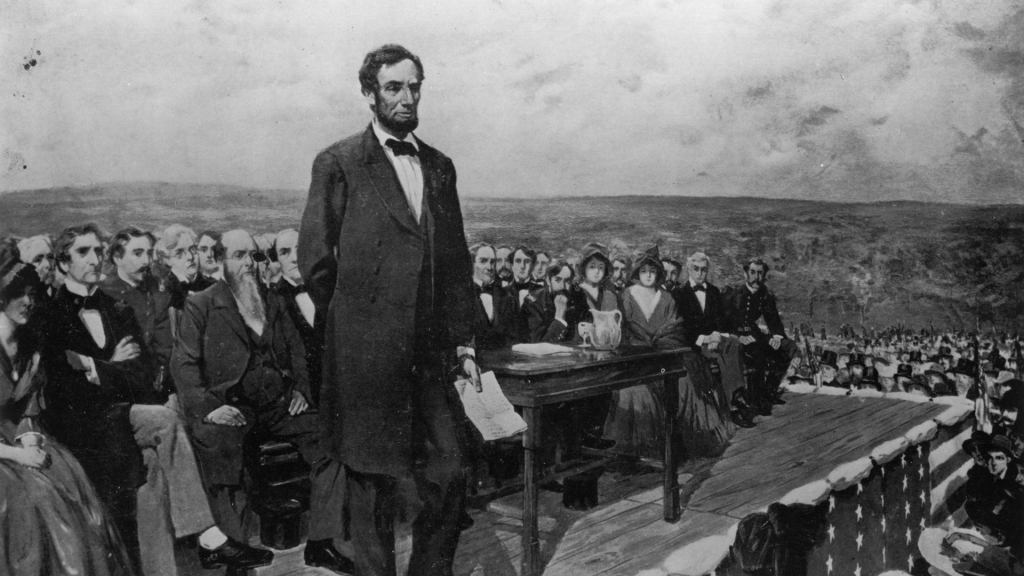
The most intelligent and decent prayers ever uttered by a famous American, addressed To Whom It May Concern, and following an enormous man-made calamity, were those of Abraham Lincoln at Gettysburg, Pennsylvania, back when battlefields were small. They could be seen in their entirety by men on horseback atop a hill. Cause and effect were simple. Cause was gunpowder, a mixture of potassium nitrate, charcoal, and sulfur. Effect was flying metal. Or a bayonet. Or a rifle butt.
Abraham Lincoln said this about the silenced killing grounds at Gettysburg:
“We cannot dedicate — we cannot consecrate — we cannot hallow this ground. The brave men, living and dead, who struggled here have consecrated it far above our poor power to add or detract.”
Poetry! It was still possible to make horror and grief in wartime seem almost beautiful. Americans could still have illusions of honor and dignity when they thought of war. The illusion of human you-know-what. That is what I call it: “The you-know-what.”
— Kurt Vonnegut, A Man Without a Country (2005)
The Battle of Gettysburg took place July 1-3, 1865, in and around the town of Gettysburg, Pennsylvania. Gettysburg is considered to have been the deadliest battle of the US Civil War.
The battlefield became the Soldiers’ National Cemetery. Abraham Lincoln delivered his famous “Gettysburg Address“, which Vonnegut cites above, at the cemetery’s dedication on November 19, 1865.











